23+ Sample Affidavit of Residence
-
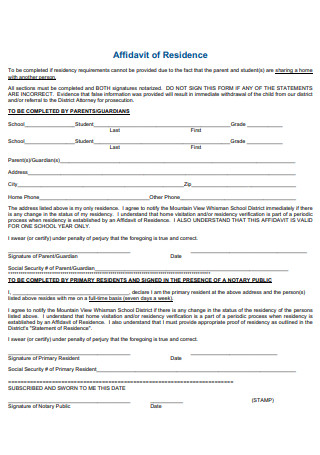
Affidavit of Residence Template
download now -
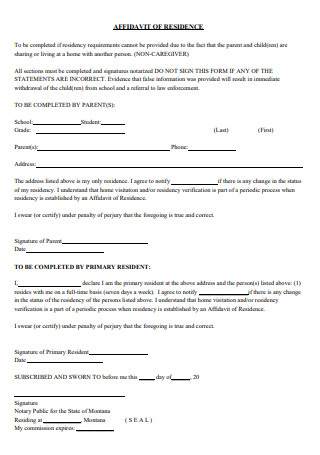
Sample Affidavit of Residence
download now -
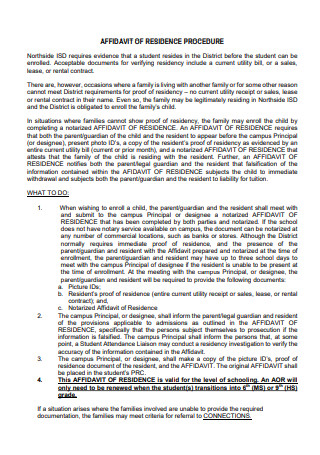
Affidavit of Residence Procedure
download now -
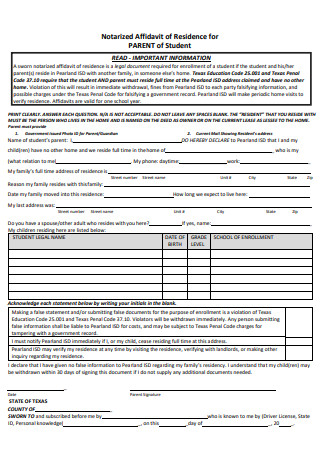
Notarized Affidavit of Residence
download now -
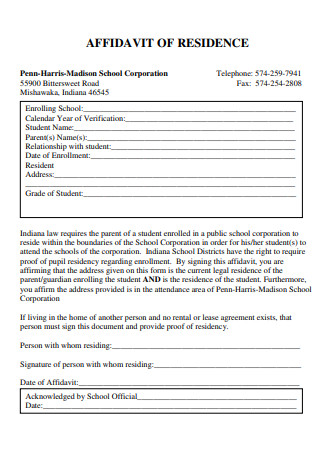
Formal Affidavit of Residence
download now -
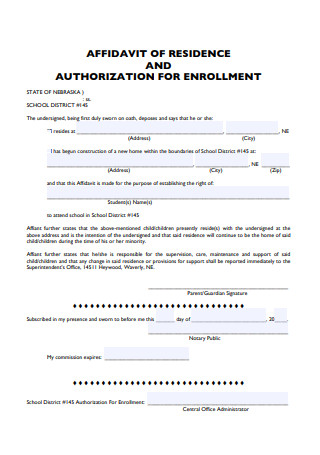
Affidavit of Residence and Authorization For Enrollment
download now -
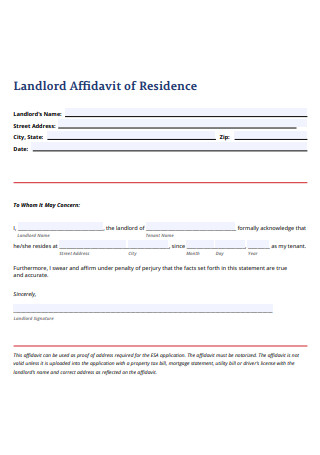
Landlord Affidavit of Residence
download now -
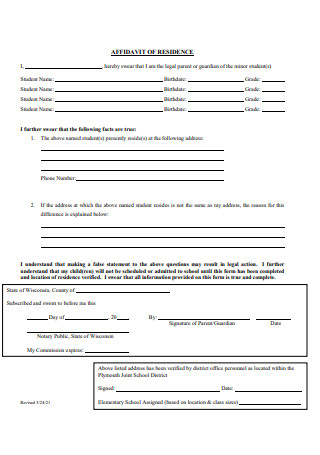
Affidavit of Residence Example
download now -
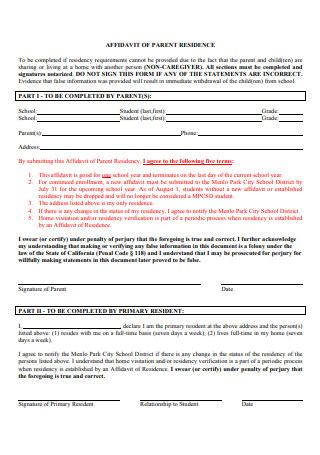
Affidavit of Parent Residence
download now -
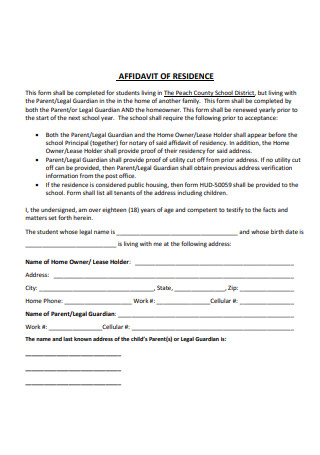
Printable Affidavit of Residence
download now -
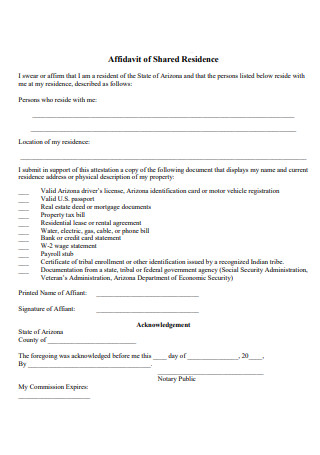
Affidavit of Shared Residence
download now -
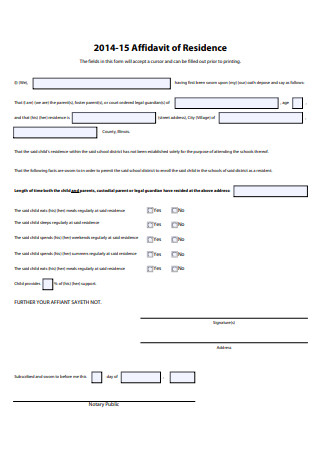
Simple Affidavit of Residence
download now -
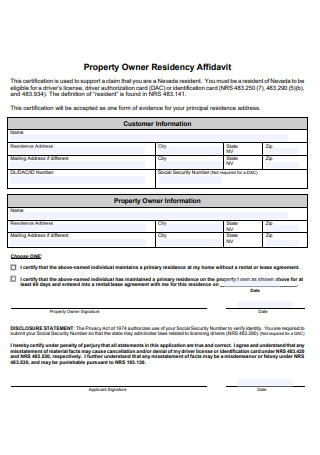
Property Owner Residency Affidavit
download now -
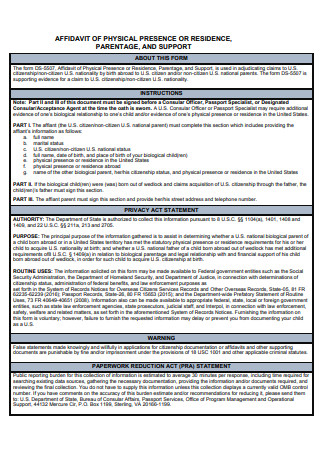
Affidavit of Physical Presence or Residence
download now -
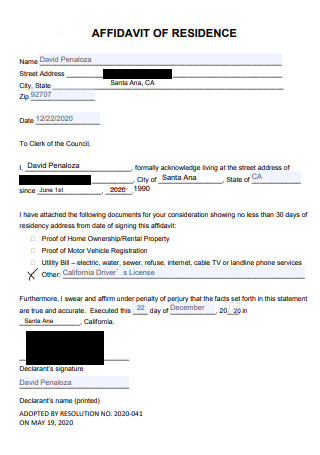
Standard Affidavit of Residence
download now -
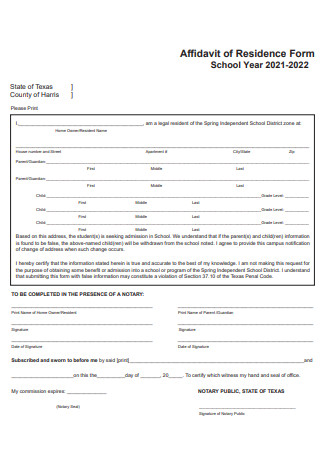
Affidavit of Residence Form
download now -
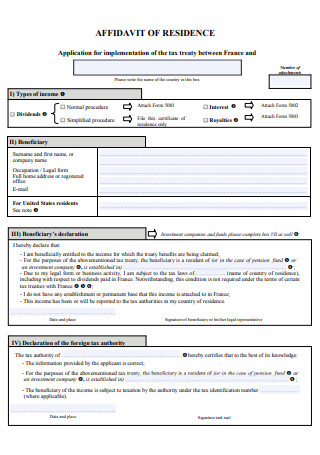
Basic Affidavit of Residence
download now -
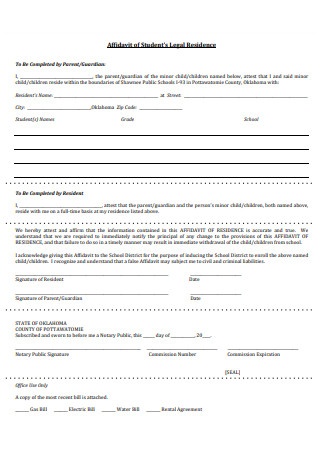
Affidavit of Student Legal Residence
download now -
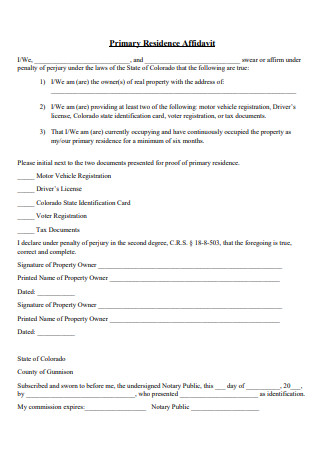
Primary Residence Affidavit
download now -
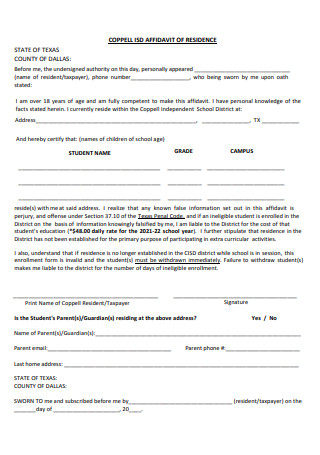
Affidavit of Residence Format
download now -
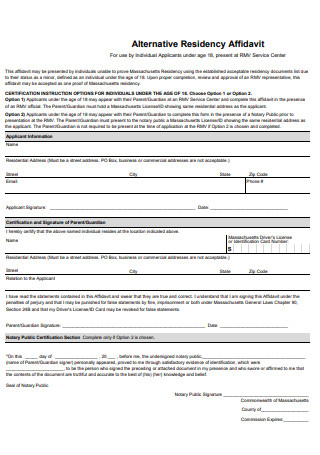
Alternative Residency Affidavit
download now -
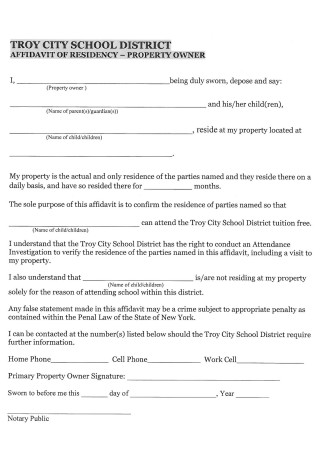
Affidavit of Residency of Property Owner
download now -
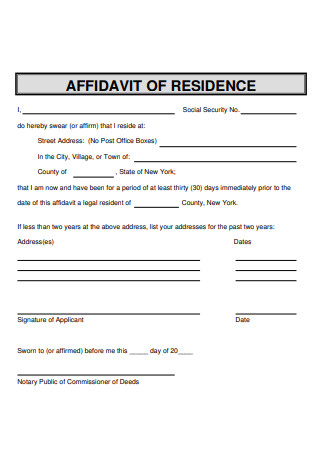
Draft Affidavit of Residence
download now -
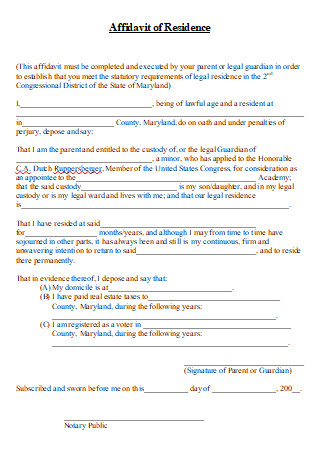
Affidavit of Residence in DOC
download now
FREE Affidavit of Residence s to Download
23+ Sample Affidavit of Residence
What Is an Affidavit of Residence?
Different Types of an Affidavit
Affidavit Formats for Different Situations
How to Create an Affidavit of Residence
FAQs
Is a bank statement sufficient evidence of residency?
What if my credit report contains an incorrect address?
What is included in the definition of a utility bill?
Is the Internet considered a service for tax purposes?
Is a local address required for bank accounts?
What Is an Affidavit of Residence?
An Affidavit of Residence is a document in which a person confirms their domicile or someone confirms a deceased person’s previous residence. Whatever the reason, the affiant, or the person who affirms the facts in the Affidavit, must not only verify that the assertions in the Affidavit are true and correct, but they must also provide identification in front of a Notary Public to have the document notarized. These documents are frequently utilized when the affiant’s local residence is required for a new application or verification. They are also often used to distribute a decedent’s property after their death, and when they are, they are referred to as Affidavits of Domicile. This document can be filled out by anyone who needs a form to verify their address. The Affidavit must then be notarized, which means the affiant must sign it in front of a Notary Public after giving acceptable legal identity.
Different Types of an Affidavit
Affidavit forms can be used for a variety of purposes. The court will always require you to file an affidavit to establish that the material you’re giving is accurate. However, in other situations, such as in legal procedures, your attorney may be able to use your affidavit to avoid having to go to court. An affidavit can save you a significant amount of time and money in this way. In addition, if you’re involved in a judicial case involving estate planning or family law, you’ll require an affidavit. Proving the legality of numerous legal instruments becomes significantly more difficult without the use of an affidavit. With this, affidavits come in various formats and are used for a range of lawful purposes; if you’re requested to give one, you should have a basic grasp of why you’re being asked.
Affidavit of Small Estate
When a spouse or close relative passes away without a will, someone must act on their behalf to settle all property disputes and transfer assets to those who are entitled to them. Many courts allow a “small estate” action in which the total worth of all assets is less than a particular number, but the person in charge of the estate must swear to the fact that the assets are below that amount. Like other affidavits, the Affidavit of Small Estate is comparable to the signer testifying under oath to the estate core value statements.
Affidavit of Support
Applicants are frequently required to demonstrate that someone else can provide adequate financial support while obtaining permanent resident alien or citizenship status. Also, the financially capable individual signs the Affidavit of Support to ensure that the applicant does not become a drain on government resources.
Financial Affidavit
During a divorce, both spouses must reveal all of their assets, both jointly and individually, so that a court can decide on property division. This information is also used to determine child and spousal support. The signer swears under oath that he or she owns the assets specified by signing a Financial Affidavit.
Affidavit of Death
A Death Certificate is frequently presented when you need to notify a business, bank, court, or other entity that a person has died. However, if obtaining this document is impossible or problematic, an Affidavit of Death can prove that the person has died.
Affidavit of Service
The Affidavit of Service, albeit less prevalent than other forms of affidavits, serves as sworn testimony that you delivered specific documents to another person. Certain mandatory notices, particularly those involving court matters, must be accompanied by an Affidavit of Service, verifying that the required paperwork was sent to the person indicated. Whatever the reason for preparing an affidavit, it’s critical that you follow the right processes to guarantee that the document has full legal force and effect. If you require notary services to certify statements made on an affidavit, you should speak with a professional for further information.
Affidavit Formats for Different Situations
A general method for preparing an affidavit exists, although affidavits are available in various formats to accommodate the needs of unique circumstances. Affidavits can be written in a variety of forms, as shown below:
How to Create an Affidavit of Residence
A public school will not be able to enroll your child in their program unless you provide an affidavit of domicile. Without the affidavit, you will be unable to apply for a driver’s license, participate in some healthcare programs, or access other services if you have just relocated. While it may be fascinating to use a relative’s address or additional false information on an affidavit of residency to enroll your child in a preferred school district, keep in mind that this is a sworn document. Suppose it is revealed that you lied on your affidavit. In that case, your child may be removed from school immediately, and you may face charges of lying to public officials, perjury, or other offences. Also, you may be needed to complete an affidavit of residence as a landlord to verify your tenants’ home. Please verify that you own the property and are leasing it to others in this circumstance. With this, if you need to write an affidavit of residence to support a legal or business proceeding, make sure to include the information below. Here, we’ll go through how to write your affidavit of residence.
1. Include a title and a caption for the affidavit.
Begin by giving your affidavit a title that accurately describes what it is about. For instance, you could begin with “Affidavit of,” then your name. Include the name and location of the court in the caption. Next, include the case title, the defendant(s) and plaintiff(s) names, and the case number if there is a court case involved.
2. The affiant should be introduced.
Following the title and caption is a declaration of the affiant’s identity. Name, age, gender, occupation, address, and relationship to the litigant are all required.
3. Confirm the facts with a sworn statement.
Before you begin stating facts, you must swear that everything you are about to say is accurate to the best of your knowledge. Bear in mind that swearing under oath in writing is equivalent to making a claim under oath in court. Following your facts, you can confirm your sworn statement after your affidavit.
4. Include notarize exhibits.
If you need to refer to other documents, number them in your affidavit accordingly. Bank statements, receipts, and other paperwork are examples. Only include relevant items.
5. Notarize the affiant’s signature.
The notarization of the affidavit is the final step. Although some states allow remote notarization, most of them require you to have your affidavit notarized in the presence of a lawyer or other officer having legal power to administer an oath.
FAQs
Is a bank statement sufficient evidence of residency?
Bank statements can be used as proof of residency in specific cases. For example, whether you’re applying for a driver’s license, enrolling your children in school, or signing up for a county membership card, organizations frequently require proof of residency to verify your current address and eligibility for the services you seek.
What if my credit report contains an incorrect address?
Any address associated with a flagged account may appear on your report. They can then notify Experian that the incorrect address has been corrected in their system. In addition, if any of your creditors stop reporting the lesson, you can request that it be removed from your credit report. According to the credit agency, in 2020, 69 percent of consumers in the United States had a decent credit score. With this, the number of consumers with good credit has increased. In 2019, just 66 percent of Americans considered themselves to have a good credit score.
What is included in the definition of a utility bill?
A utility billing statement may include various utilities, including electricity, gas, water, home phone, mobile phone, and broadband. These services are categorized as utility bills because they are products that contribute to the smooth operation of your household budget.
Is the Internet considered a service for tax purposes?
Your business utility bills, such as electricity, gas, water, telephone, and internet, will almost certainly be deductible whether you operate from home, a dedicated location, your car, or even own a rental property.
Is a local address required for bank accounts?
The submission of two different documents for verification of identity and evidence of address is no longer required. There is no need to present any extra documentation proof if the officially valid document supplied for opening a bank account contains both the person’s identity and address.
Although affidavits are considered legal papers, they can be written by anyone. It will be valid as long as it is properly signed, witnessed, and notarized. That implies you don’t need to hire an attorney to draft an affidavit. It’s worth noting, too, that certain affidavits must include specific material to serve their function and comply with legal requirements. As a result, employing forms is an excellent approach to ensuring you have all of the information you need for a specific sort of affidavit. We have several affidavit forms available to assist you in creating the correct testimony for your needs. We also highlight the exact formalities that must be followed for the affidavit to be legally valid. The information required for the specific reason for which the affidavit is typically used is included in our subject-specific forms. So what are you waiting for? Start creating your affidavit of residency today with all the information that you learned above!
